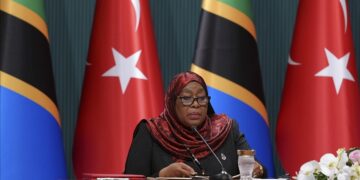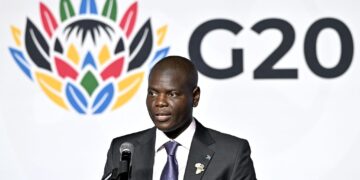Eskom Holdings SOC Ltd., South Africa’s embattled state-owned power utility, is taking decisive legal action against the National Energy Regulator of South Africa (NERSA) following its issuance of electricity trading licences to multiple private entities. Eskom’s legal appeal, lodged with the High Court, underscores the utility’s opposition to opening regional markets to competitors, a move Eskom contends is premature given the absence of established trading regulations.
NERSA’s recent decision to grant trading licences to entities including CBI Electric Apollo, Discovery Green, Green Electron Market, and GreenCo Power Services has reignited long-standing debates on the structure and future of South Africa’s energy market. Eskom, which currently holds a de facto monopoly on electricity distribution in most regions, argues that a regulatory framework is essential to ensure fair competition and maintain operational standards. The state utility contends that NERSA’s decision to proceed without comprehensive trading rules risks undermining service reliability and complicates Eskom’s efforts to stabilise supply amid its ongoing infrastructure challenges.
This legal clash comes at a critical juncture for South Africa’s energy sector, where private-sector investment is increasingly viewed as essential to meet growing demands and to address the country’s infrastructure deficit. Finance Minister Enoch Godongwana recently announced the government’s plans to designate infrastructure as a distinct asset class, thereby positioning it to attract targeted funding and enable private-sector involvement. These initiatives, complemented by the establishment of infrastructure investment trusts and blended-finance vehicles, aim to encourage private companies to contribute to the development of roads, energy transmission networks, and other public works projects. The South African government, under President Cyril Ramaphosa’s administration, is actively seeking to mobilise up to 3.2 trillion rand ($182 billion) from private investors by 2030 to modernise critical infrastructure.
Despite these ambitions, Eskom’s resistance to competitive electricity trading raises questions about the extent of the state’s openness to liberalising energy markets. Eskom’s legal action highlights the complex balance between fostering private investment and protecting the operational stability of South Africa’s energy infrastructure, a delicate act further complicated by the financial and technical challenges the utility has faced in recent years.
In parallel with Eskom’s courtroom pushback, other state-owned entities are also adapting their operational models in response to South Africa’s infrastructure crisis. Transnet SOC Ltd., the country’s primary port and freight-rail operator, has introduced revisions to its procurement policies to expedite work on critical infrastructure projects. As part of its strategic shift, Transnet aims to enter into long-term agreements with equipment manufacturers and customers, enabling more rapid access to essential supplies in times of operational crises. This streamlined approach, which marks a shift from Transnet’s previous procurement practices, is aimed at addressing the chronic delays and supply chain challenges that have hindered South Africa’s freight and logistics sectors.
Meanwhile, South Africa’s ambitions for expanding its nuclear energy capacity have also gained momentum. Electricity and Energy Minister Kgosientsho Ramokgopa’s recent visit to the facilities of X-energy LLC in the United States signals the country’s interest in procuring small modular nuclear reactors (SMRs) to meet escalating energy demands. According to government sources, South Africa is seeking to add 2,500 megawatts of new nuclear capacity—a figure that exceeds the current output of the country’s sole operational nuclear facility at Koeberg, near Cape Town. SMRs, which offer a scalable alternative to traditional nuclear plants, have garnered attention as a viable component of South Africa’s long-term energy strategy, particularly given the country’s goal to diversify its energy sources.
Eskom’s legal challenge underscores the inherent friction within South Africa’s evolving energy landscape, where the pursuit of modernisation often conflicts with entrenched interests and operational inertia. As Eskom and other state-owned entities navigate these challenges, the role of private investment and regulatory reform will remain pivotal to achieving South Africa’s energy and infrastructure objectives. The outcome of Eskom’s court bid could set a significant precedent, shaping the future of energy governance and market structure in the nation for years to come.















